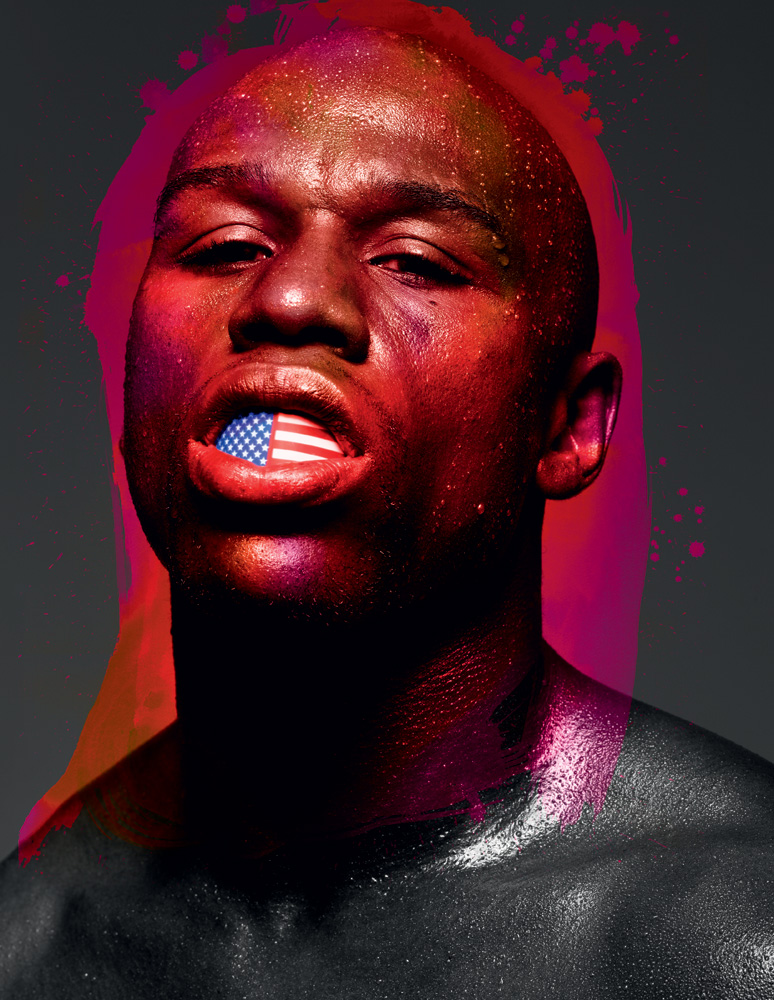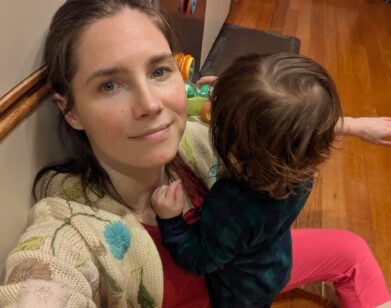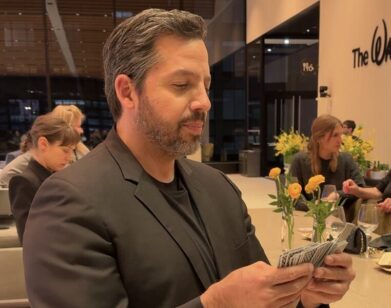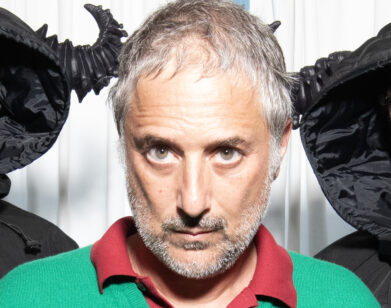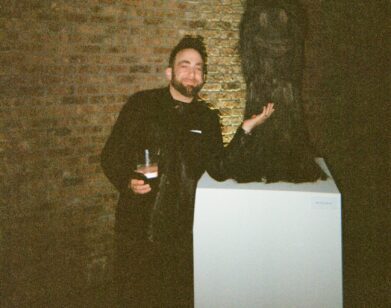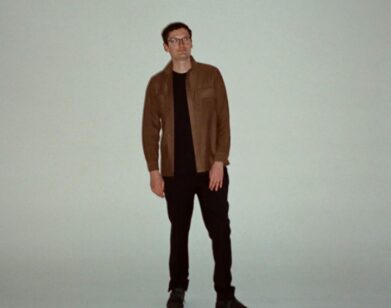Floyd Mayweather Jr
These, friends, are pugilistic times. Jon and Kate, Republicans and Democrats, The Real Housewives of New Jersey—everyone is looking for a fight. So why, then, has the sport of boxing fallen on such hard times? The whiff of corruption that stilllingers from the Don King era and the dearth of new talent in the upper divisions are two easy explanations. But while boxing might never again achieve the kind of transcendent place in the culture it had in the days of lumbering heavyweights like Ali, Foreman, and Frazier—who talked smack and pounded the life out of each other with a kind of brutal grace—the future of fighting might very well rest on the shoulders of Floyd Mayweather Jr.

When asked—and often unprompted—the 32-year-old Mayweather will offer that he is the best boxer ever. But while the accuracy of that self-assessment is the subject of much debate, it’s hard to argue with the numbers: Since turning pro in 1996, Mayweather has won 40 matches—25 of them via knockout—and lost none, and he’s scooped up six titles in five different weight classes along the way. In the ring, he is more of a smooth-operating tactician than a Tyson-esque weapon of mass destruction. His style is defensive, but his reflexes are quick, and his rare yet seemingly basic ability to hit other men in the face while somehow managing to protect his own—his mug is still remarkably devoid of scars—earned him the nickname Pretty Boy as an amateur. Another nickname that Mayweather has earned is Money, and that one, too, is well deserved—as much for the fact that he is one of the highest-paid fighters in boxing today as for his affinity for walking into battle dressed in ostrich-skin trunks and chinchilla robes. (It’s worth noting that in the middleof the photo shoot for this story, Mayweather left to go to the bank. He also went to the bank a few days later in the middle of the interview.)
Growing up in Grand Rapids, Michigan, Mayweather was introduced to boxing at an early age. His father, Floyd Mayweather Sr.—once a welterweight fighter—started training Floyd Jr. when he was just 5 years old. However, his tutelage of Floyd Jr. was derailed when the elder Mayweather was sentenced to five years in prison in 1994 on a drug-trafficking conviction. But the relationship between Floyd Jr. and Floyd Sr. remains a complicated one, filled with periods of estrangement and reconciliation: Floyd Jr. has said that his father pushed him too hard when he was a kid; Floyd Sr. has taken credit for his son’s success; when Floyd Jr. defeated Juan Manuel Marquez in a 12-round decision this past September—his first match after a brief, 21-month retirement—Floyd Sr. was back in his son’s corner for the first time in nine years.
By the numbers, Mayweather may very well be the best that boxing has to offer right now. But the more looming issue for him is quickly becoming one of history. The most important fighters of all time—the ones who changed the sport—were always about more than wins and losses. They were galvanizing forces, polarizing personalities, rogues, radicals,misfits, and dissidents—and, in the case of Ali, all of the above at the same time. They weren’t just boxers—they were fighters in every sense of the word. Despite his perfect record, Mayweather’s critics have argued that he has gone to great lengths to protect it, going long stretches between bouts and carefullychoosing his opponents. They are also quick to point out that he hasn’t fought either of the top two contenders in his division, Manny Pacquiao and Miguel Cotto, who at press time were scheduled to fight each other on November 14 at the MGM Grand in Las Vegas. The winner of that match would appear to be the natural next opponent for Mayweather, but whom he will fight next is anyone’s guess. As the 40 men whom he has dropped in his career thus far can readily attest, the moment you think you’ve got Floyd Mayweather figured out, he hits you with another surprise.
Writer Jonathan Ames—a sometime amateur boxer who fights as The Herring Wonder—recently spoke to Mayweather, who was in Los Angeles.
You can talk about other fighters all you want. But I’ve never been beat before. So all roads lead to Floyd Mayweather. The big question for everyone is, How can we beat this guy?Floyd Mayweather Jr.
JONATHAN AMES: Just right up front, I’ve been told I have a very boring phone voice, so I just apologize if I sound like a dull person.
FLOYD MAYWEATHER JR.: Well, I’m not trying to be funny, but you’re a man—you’re not supposed to be talking sexy to me, no way. You should worry about how a woman talks, not how a man talks. So let’s get on with the interview.
AMES: Okay. I just didn’t want you to think, like, “Oh, man, they put me on with a corpse.” A lot of people think my voice sounds dead. So I just was apologizing.
MAYWEATHER: Well, it’s obvious you’re in this position as the interviewer here for a reason, so just do what you do.
AMES: Well, I’ve got a number of questions to ask you, but first, when do you think your next fight will be? Or is that totally up in the air right now?
MAYWEATHER: You know, everything’s up in the air at this particular time. My two advisers have been doing a lot of talking amongst each other—you know, just talking about the future of my career. And we’re taking it one day at a time. I’m pretty sure when we do pick an opponent, it’s gonna be a solid opponent. We just don’t know who the opponent will be at this particular time. But when that fight does present itself, I will be ready both mentally and physically.
AMES: What drives you the most in your boxing career? Is it money? Is it the glory?
MAYWEATHER: I mean, it’s everything all wrapped into one, you know? I think I already proved that I wasn’t just fighting for the money, because I fought as an amateur. I fought 90 fights for free. But then, once you get to this stage of your career, everything becomes a part of your legacy. Of course, you want to be the best fighter to ever live. Not to knock no other champions, but I think everybody is put in a certain position for a reason. Muhammad Ali called himself the greatest, and after a while, he was the greatest. I say I’m the best ever, and so as long as I keep saying that . . . I think that, with the boxers that fought in my era, they’ll say, “He was the best ever,” but it’s all with respect to the legendary champions that came before. I mean, I didn’t fight in Muhammad Ali’s era, or Sugar Ray Robinson’s, or Sugar Ray Leonard’s, or fight the fighters that they fought in those times. But, you know, in their careers they did a hell of a job, and in my career I think I’m doing a hell of a job.
AMES: Well, by saying, “I’m the greatest ever,” what’s cool is that it sounds like—
MAYWEATHER: No, no, no. I’m saying I’m the best ever. Ali said he was the greatest of all time, but I say I’m the best ever. You know, everybody has a slogan, and once you beat people over the head with it so much, then that’s what you’ll eventually be called once you retire from the sport or whatever. But the only way that you can make a statement like that true—the only way that it is true—is if you’re doing what you say you’re doing. You get a lot of fighters that talk a lot of trash, but they can’t back it up. I’ve backed up what I’ve said thus far, and I am in a position now to say that I am one of the best—if not the best. A lot of times, in the beginning of my career, I put pressure on myself just because I wanted to perform so well. I just wanted to be perfect.
AMES: I saw some quote from you, and I don’t mean to touch on this, but—
MAYWEATHER: Well, if you don’t mean to do it, then don’t do it!
AMES: No, well, it’s an emotional—
MAYWEATHER: People always say, “I don’t mean to do this . . . ,” and then they do it! If you don’t mean to touch on it, then don’t touch on it. That’s how I feel.
AMES: Yes, I see your point, but I did see a quote where you said that when you first started boxing, part of your problem with your father was that he expected you to be perfect. Do you think that’s where some of your own perfectionism comes from?
MAYWEATHER: You know, you say certain comments in the past, and as you get older, you may not have those same feelings. When I was younger, my dad did want me to be perfect, so that’s probably why that’s installed in me to this day. I want to be perfect at whatever I do. I can’t help it. It’s just installed in me.
AMES: But now, even though you still aim to be as close to perfect as you can be in the ring, you don’t beat yourself up as much about it?
MAYWEATHER: Well, my mother and certain other people in my life—a lot of important people—have said, “Floyd, nobody is perfect except for god.” And I always knew that; I just wanted my victories to be flawless. I didn’t want to get hit at all. I wasn’t gonna make any mistakes. And that’s the problem with me growing up and being around a trainer that wants his fighter to be perfect.
Mike Tyson was one of the fighters who motivated me. I used to see his Rolls-Royce, his diamond Rolex on, and I said, ‘You know what? Those are the things that I want.’Floyd Mayweather Jr.
AMES: You started fighting at a young age. Growing up in a boxing family, do you ever feel like you missed out on a different kind of childhood?
MAYWEATHER: Hold on one second; I’m sorry. . . . [to someone off phone] Got everything in the bag? I need my jacket. . . . The Gucci jacket. . . . Upstairs. It’s
on the chair. It looks like this. . . . The Gucci jacket. . . . You can put this on the hanger and get it all ready in the car.
AMES: Hello?
MAYWEATHER: Sorry. Okay, I’m ready. More questions.
AMES: As I was saying, you started fighting at a very young age. Do you ever wish that you’d had maybe a more traditional childhood?
MAYWEATHER: Well, my life is kind of like Michael Jackson’s, you know? Or similar in some ways: I just think that some people are more strong-minded than others. But every day as a kid, I went to the boxing gym. I knew boxing before I knew anything else. And I was once told if you show your child how to do something and you constantly push them, then eventually they’ll become masters. They’ll become a master of their craft. So that’s probably what happened with me and the sport of boxing.
AMES: Do you push your own kids in that way?
MAYWEATHER: [sighs] No. I’m letting my kids find their own way. My older son loves boxing. I think my younger son likes wrestling.
AMES: How would you feel if your older son went into boxing? Would it be tough for you to watch him fight?
MAYWEATHER: Well, I only want the best for him. Boxing is, of course, in my whole family, so sometimes I’ll work with him or my dad will work with him or my uncle Roger [Mayweather] will work with him. But the main thing is that I’m not trying to put pressure on him. I think my dad, when he works with my older son, puts the same kind ofpressure on him that he put on me—that perfectionist pressure. And that can work in two ways: It can make you a perfectionist yourself, or it can eventually break you in the long run.
AMES: You’ve actually started promoting fights yourself. Do you see yourself doing more of that in the future?
MAYWEATHER: Well, I think Richard Schaefer [the boxing promoter] has done a tremendous job with Golden Boy Promotions. They’ve got decent names over there—Bernard Hopkins and Shane Mosley. The only problem they have is that those guys are . . . I mean, Bernard Hopkins is already over 40, and Shane Mosley is knocking on the door. So once those two guys are retired, I think Mayweather Promotions is going to step in. Not that Golden Boy doesn’t have a lot of talent, but what we’re looking for also accounts for entertainment. We’re looking for the next Floyd Mayweather—that one great fighter who is also a great entertainer who can draw revenue not just for the company but for themselves.
AMES: Do you enjoy the things you’ve done outside of boxing, like wrestling at WrestleMania and appearing on Dancing with the Stars?
MAYWEATHER: Absolutely.
AMES: Do you want to do more of that stuff down the road?
MAYWEATHER: Absolutely. We’re working on some fashion things right now. I’m doing some more commercials. We’re doing some movies. You know, I’m going to take that risk and take the chance to do anything that’s entertaining.
AMES: So you like a new challenge.
MAYWEATHER: Hold on one second. [talks to someone off phone] What cars you got? The Cadillac truck? I’m gonna take the Bentley. I don’t want to take the Rolls-Royce. Take the Cadillac truck. . . . What’s eight-and-a-half? I don’t play baseball. . . . I’m betting a few Gs anyway. I could win that back at the casino—one roll of the dice. [back to phone] Hello?
AMES: Hey. So I had a question about the Manny Pacquiao versus Miguel Cotto fight—
MAYWEATHER: Oh, no. That’s not my business, son. If you want that question answered, you gotta call Bob Arum [the Top Rank boxing promoter]. AMES: But if you end up fighting the winner of that fight—
MAYWEATHER: Sir, sir, sir. That’s not my business, sir. You want to know about those fighters, you gotta talk to Bob Arum or talk to those fighters. No matter who wins that fight, all roads lead to Floyd Mayweather. It has nothing to do with me.AMES: Okay. Then what would be the most entertaining fight for you to see?
MAYWEATHER: Any fight that Floyd Mayweather is in is going to be entertaining, regardless. People come to see an icon, a living legend, a superstar. You can talk about other fighters all you want. But I’ve never been beat before. So all roads lead to Floyd Mayweather. The big question for everyone is, How can we beat this guy? How can we beat Floyd Mayweather? Simple as that.
AMES: I know this might be strange to think about, but if you could fight yourself, how would you beat you?
MAYWEATHER: How would I beat me? Well, I know how I could beat myself: by not being disciplined, by slacking, by not dedicating myself to my craft, by not working hard, by not listening, by thinking I know it all—you can come up short like that. But at this specific time in my life, god doesn’t want me to lose. When god wants me to lose, then that’s when I’ll lose. But until then, I’m going to be at the top of my game and keep working hard anddedicating myself to the sport of boxing and to being the best entertainer that I can be and togiving the fans their money’sworth. [to someone off phone] Hey, we got all the phones? You put all the jeans in the bag? Okay, I’m wearing that to the club tonight. . . .Get my cars washed. . . . Hello?
AMES: Hey.
MAYWEATHER: I’m sorry.
AMES: Oh, that’s okay.
MAYWEATHER: I’m having a busy day.
AMES: That’s all right. Well, I feel like you’re the biggest name in boxing right now. . . .
MAYWEATHER: No. Floyd Mayweather is bigger than the sport. That’s the thing. Because you can go to somebody who don’t even know what boxing is and say, “Floyd Mayweather.” They’ll go, “Oh, I know Floyd Mayweather. I’ve heard that name.” A lot of the time, with names, you’ve got to be a boxing fan to know who these other fighters are today. Sometimes, people say certain things about me that are negative, but that’s no problem. I try to take their negative and turn it to a positive. That’s why I like to surround myself with positive people. That’s why I’m able to go into a fight of such high magnitude and be at ease—because, when I get in that ring, I say, “God could have chosen anybody, but I’m the chosen one.” I’m happy to be in that position, so I’m gonna take full advantage of it.
AMES: Do you go to church?
MAYWEATHER: No. I go but not a lot. A lot of the time when I go to church, people want to take pictures. They want you to sign autographs. So I don’t go all the time. I go once in a blue moon. Every once in a blue moon.
AMES: So spirituality is more of a private thing for you?
MAYWEATHER: Yeah, my spirituality is more private. My mother always said, “You don’t have to go to church all the time to have a relationship with god.” So I’ve got my own personal relationship with god. I know that there’s a god because I was able to survive everything that I’ve been through—all of the tough times—and I’m still at the top of my game. With all the rumors and all the hate, I’m still strong, still happy, still blessed.
AMES: What would you say was the toughest fight of your career? Which of your opponents do you think pushed you the most?
MAYWEATHER: My toughest fight? Well, there’ve been different fights that have been very entertaining. When I fought [Juan Manuel] Marquez in September, I didn’t bring my A game. I beat him probably with a C game. Not to be bragging or boasting, because he’s one hell of a fighter—and he deserves to be number two, pound for pound. But I probably beat him with a C or a Dplus game. I only wish him the best, though, because he’s one hell of a fighter. He’s one hell of a guy.
AMES: What’s your opinion of Mike Tyson?
MAYWEATHER: He did it his way. Mike Tyson was one of the fighters who motivated me. How? We both used to train at the Golden Gloves boxing gym. I used to see his Rolls-Royce, his diamond Rolex on, and I said, “You know what? Those are the things that I want.”
AMES: Are you friends with him?
MAYWEATHER: Me and Mike hang out. A little while back, we weren’t seeing eye to eye. But me and him talked, and I just told him that I don’t have no problem with him. He said, “Floyd, you’re a hell of a fighter, man. You’re one of the best fighters I’ve ever seen.” And you know, that meant a lot to me.AMES: What do you think, overall, of his career and everything that’s happened to him?
MAYWEATHER: I’m not here to judge Mike Tyson. I’m not here to judge nobody. I’m not here to monitor no other fighters. I respect him for what he did in the sport of boxing. He was an entertainer.
AMES: What about Roy Jones Jr.?
MAYWEATHER: Roy Jones? Same thing—very talented. I think that after the [John] Ruiz fight[in 2003], he should have retired from the sport. Then I think he would have gone down as one of the best. I think he’s still gonna go in theHall of Fame, but not as one of the best. He’s a hell of an athlete, though. Great guy. When he fights
Bernard Hopkins next year, I want to see himbe victorious. I’ll root for him.
AMES: What about Hopkins? What are your thoughts on him?
MAYWEATHER: Bernard Hopkins? He fights scary dirty. I mean, he did what he had to do in his career.
AMES: One fight that I’m curious to be able to ask someone like you about is a fight from a while ago: What did you think of the De La Hoya versus [Felix] Trinidad fight from 1999?
MAYWEATHER: I think, to be honest . . . I’m gonna tell you what I think of De La Hoya: I think Shane Mosley was on steroids and De La Hoya really beat him both times. I think De La Hoya laid down with Bernard Hopkins. But I think that De La Hoya beat Trinidad. . . . Hold on one second, sir. [to someone off phone] You need to put the rope under the bottom. [back on phone] Yeah, hello?
AMES: Hello.
MAYWEATHER: I’m sorry. I’m having to do different stuff while we talk.
AMES: I understand. I wanted to ask you, though, how much training do you do when you’re not preparing for a fight? Because, like, everyone was so impressed with how you came back from your brief retirement earlier this year. You were so sharp. You didn’t let yourself go at all.
MAYWEATHER: I normally go right back into training the Monday after the fight. I took a month off after the last one. That’s a long time for me—I’m going to start back working out today, actually. . . . Hold on a minute. . . . [off phone] Yeah. Who do I write the cashier’s check out to?
AMES: Hello?
MAYWEATHER: Sorry, I’m in the bank, man. AMES: So, what do you do for fun?
MAYWEATHER: I spend time with my kids. We go skating or bowling or to the movies. We ride roller coasters at theme parks, go to the beach, travel, go on Jet Skis. Everything.
AMES: So you’re very physically active. You’re not out partying or living that kind of lifestyle.
MAYWEATHER: I mean, I like to party, too. I love to party. But I don’t drink or smoke—you know, to each his own, but I don’t do that.
AMES: Do you have a steady woman in your life right now?
MAYWEATHER: I don’t talk about my personal life—or what I do with no females. Just know that I love women. A lot.
AMES: All right, well, thank you very much for taking the time, Floyd.
MAYWEATHER: Anytime. I appreciate the interview, man. Thank you.
AMES: Okay, and I—
MAYWEATHER: And I don’t think your voice sounds boring. Actually, I think your voice is cool.
AMES: Well, thank you. I’m looking forward to your next fight.
MAYWEATHER: All right, man. I appreciate you, and I appreciate this. Now I’m going to support you and follow you.
AMES: Okay, well, I have a TV show on HBO on Sunday nights called Bored to Death, if you ever want to check it out.
MAYWEATHER: All right, man. Keep up the good work.
Jonathan Ames is a Brooklyn–based novelist and the creator of the HBO series Bored to Death.

